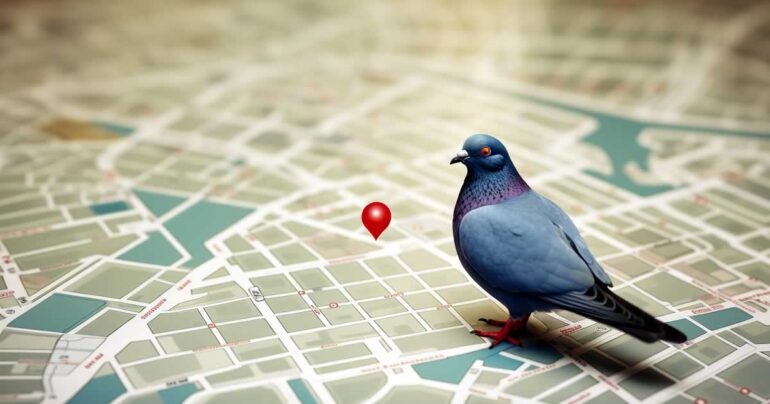TL;DR:
- PIGEON, developed by Stanford graduate students, can pinpoint locations accurately from Google Street View images.
- Achieves impressive results, predicting countries with 92% accuracy and pinpointing within 25 kilometers in over 40% of cases.
- PIGEON surpasses human performance in GeoGuessr, a location guessing game, with over 1.7 million viewers in live matches.
- Powered by the CLIP neural network, PIGEON’s dataset is comparatively smaller but yields remarkable results.
- PIGEOTTO, another model, outperforms benchmarks by up to 29.8% in country accuracy using Flickr and Wikipedia data.
- Ethical considerations were addressed; model weights were not released to protect privacy.
- These innovations open new possibilities in AI-based geolocation, with applications in autonomous driving and visual investigations.
Main AI News:
In the ever-evolving landscape of artificial intelligence, a groundbreaking project has emerged from the halls of Stanford University, promising to revolutionize the way we perceive image-based location tracking. Spearheaded by a group of enterprising graduate students, this remarkable innovation, aptly named Predicting Image Geolocations (PIGEON), is poised to leave a profound mark on the world of technology.
In a world where safeguarding personal information is paramount, one might assume that posting photos without revealing sensitive details like license plate numbers, street names, or house numbers would ensure anonymity. However, PIGEON challenges this assumption by demonstrating how generative AI can adeptly deduce your precise location, solely from the background of your photos.
PIGEON’s capabilities are nothing short of astounding. With an exceptional accuracy rate, this AI marvel can identify a specific location by scrutinizing Google Street View images, often narrowing it down to within 25 kilometers of the target area. In fact, PIGEON has demonstrated its prowess by correctly predicting the country depicted in a photo with an impressive 92% accuracy, according to a preprint paper.
To put this achievement into perspective, PIGEON has stunned experts by ranking within the top 0.01% of players in GeoGuessr, a popular game where users attempt to pinpoint the location of a photo sourced from Google Street View. GeoGuessr, the inspiration for PIGEON, served as the catalyst for this groundbreaking endeavor. Astonishingly, PIGEON even outperformed Trevor Rainbolt, one of the world’s foremost professional GeoGuessr players, in a series of six live-streamed matches, amassing over 1.7 million viewers.
So, what lies at the core of PIGEON’s exceptional abilities? The ingenious students harnessed the power of CLIP, a neural network developed by OpenAI, capable of bridging the gap between text and images. By training CLIP to recognize visual categories, they laid the foundation for PIGEON’s success. Building upon this, PIGEON was then trained on a dataset encompassing 100,000 randomly selected locations from GeoGuessr and a set of four images capturing a complete “panorama” of each location, totaling a staggering 400,000 images.
In a field where the quantity of training data often dictates success, it’s worth noting that PIGEON’s dataset pales in comparison to other AI models. For reference, OpenAI’s renowned image-generating model, DALL-E 2, draws upon hundreds of millions of images for its training. Remarkably, the students did not stop at PIGEON. They also developed PIGEOTTO, a separate model trained on over four million photos from Flickr and Wikipedia. PIGEOTTO demonstrated exceptional results, surpassing previous benchmarks by up to 7.7% in city accuracy and a staggering 29.8% in country accuracy, as stated in their paper.
While these accomplishments are undoubtedly impressive, the students have not turned a blind eye to the ethical considerations associated with their creations. The positive implications of image geolocalization are undeniable, including applications in autonomous driving, visual investigations, and satisfying our curiosity about photo origins. However, the most prominent concern lies in the potential invasion of privacy. Consequently, the students have chosen not to release the model weights publicly, opting only to provide the code for academic validation, as outlined in their paper.
Conclusion:
PIGEON and PIGEOTTO represent a significant leap in AI-powered geolocalization, offering precise location detection capabilities. This technology has the potential to find applications in various industries, including autonomous driving and visual investigations, but ethical considerations and privacy concerns must be carefully managed for widespread adoption.

